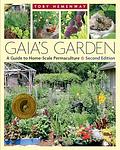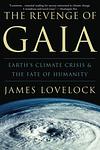James Lovelock
James Lovelock was an independent scientist, environmentalist, and futurist. He is best known for proposing the Gaia hypothesis, which postulates that the Earth functions as a self-regulating system. With a background in medicine, biophysics, and atmospheric chemistry, Lovelock's work has had a significant impact on the scientific understanding of the Earth's biosphere and the effects of human activity on the environment. He authored several books on environmental science and was a respected researcher and inventor.
Books
This list of books are ONLY the books that have been ranked on the lists that are aggregated on this site. This is not a comprehensive list of all books by this author.
-
1. Gaia
The book presents a groundbreaking hypothesis that redefines Earth as a self-regulating system, where the biosphere, atmosphere, oceans, and soil function as a single living organism. This entity, named after the Greek goddess of Earth, maintains the conditions necessary for life through complex interactions among its components. The author, an independent scientist, argues that life on Earth actively shapes the environment for its own survival, challenging traditional views of the relationship between organisms and their habitat. The work has sparked widespread debate and research, influencing fields from biology to environmental science, and has profound implications for our understanding of life on Earth and how we approach environmental stewardship.
-
2. The Revenge of Gaia
The book presents a compelling argument about the Earth's self-regulating system, Gaia theory, and the severe impact of climate change on it. The author warns that if humans continue to harm the environment, Gaia will take revenge, leading to a much hotter and less hospitable planet. He proposes solutions to mitigate the damage, such as nuclear power and sustainable technology, emphasizing the urgency to act before it's too late.

